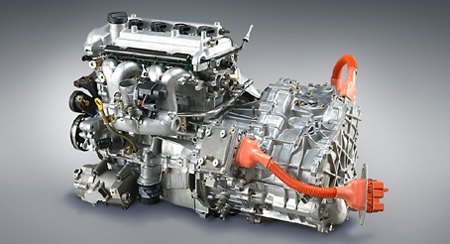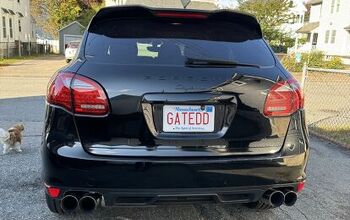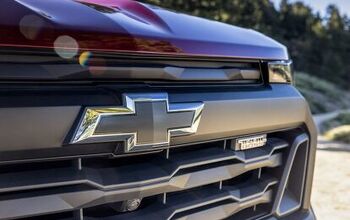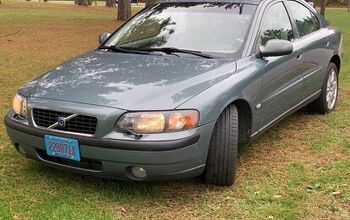The Toyota Prius Pays Off; What Happens Next?

In 1993, Toyota began developing a radical gas-electric hybrid vehicle called the Prius. With gasoline at historic lows, internal company documents gave the concept a five percent chance of commercial success. In May 2007, the Prius was America's sixth best selling passenger car, with 24k units. Toyota also just passed the one-million-hybrids-sold milestone. Toyota deserves a raspberry for the worst internal forecasting ever, and an award for one of the most successful new-car launches in automotive history.
Needless to say, the Prius' success is not without controversy. The Japanese hybrid has a more polarizing influence on pistonhead opinion than any other vehicle made save its philosophic nemesis, the Hummer H2. Compare the gas-swilling in-your-face Hummer's rumored demise with the Prius' rise up the sales charts, and there you have it: a snapshot of American's shifting priorities.
You also get a glimpse of Toyota's branding expertise. While the Japanese automaker continues its assault on the domestic pickup truck and SUV market (creating much of the animus alluded to above), the Prius is still a perfectly defined product within Toyota's existing brand identity: reliable frugality.
The Prius is such hit that it's now a household name; consumers interchange the word "Prius" with "hybrid" in the same way that they ask for a Kleenex. The last automotive product to pull that off was the Jeep– some fifty years ago.
Toyota's 80 percent share of the total U.S. hybrid market has had the Xerox effect on its competitors. Their hybrids are either flying beneath the radar (Nissan Altima hybrid), eating crumbs off Toyota's table (Ford Escape and Mercury Mariner hybrid) or retreating from the field of battle (Honda Accord hybrid).
Honda's move comes despite the fact that the company's Insight hybrid was first to market in 1999. While Honda will continue to fight for gas-electric market share with their "mild" hybrid Civic, they're putting their high-efficiency eggs in two new baskets: a new Fit-class hybrid and clean diesel engines for their existing model range.
Pundits often argue that Toyota stole a march on its competitors by creating a hybrid with unique sheetmetal (as opposed to hybrid-powered versions of existing products). Well, the Prius has had such a dramatic halo effect that consumers now associate the technology with Toyota's entire lineup. Hybrid Camrys are currently outselling hybrid Civics by 50 percent.
Toyota's success with the technology has forced all the other global players to put their nose to the hybrid-powered grindstone. Mercedes and BMW bought into GM's sophisticated (read: expensive) two-mode hybrid drive. Buyer's remorse may be setting in; the Germans are now focusing on developing their own mild-hybrid technology.
The shift reflects a realization that competing with Toyota mano-a-mano with full hybrids is a sucker's bet– especially as the Prius v3 looms. (Toyota is targeting a 20 percent efficiency gain.) The other factor is simple cost-effectiveness. Mild hybrids yield a greater return on investment.
Whereas a full hybrid demands a [ballpark] $2500 production premium, micro and mild hybrids start at $700. When combined with other technologies such as direct injection and full valve control, the mild hybrid seems a far safer proposition. BMW's revised 1-Series– complete with start-stop engine management, valve control and direct injection– shows a 20 percent fuel efficiency improvement over its predecessor.
In short, Toyota's competitors are hedging their bets, looking for less risky across-the-board fuel efficiency solutions.
The market is bi-furcating: "real" hybrids (which the market increasingly interprets as Prius/Toyota) and micro/mild hybrids (traditional models sold on their over-all moderate efficiency gains, rather than "gee whiz" technology).
And where does this shifting market leave Toyota? Dual propulsion, full-speed ahead!
Despite the fact that Highlander Hybrid sales are down 23 percent year-to-date (just over 3k units in May), the company has publicly stated that every one of their models will have optional Hybrid Synergy Drive within a few years. They've also committed the company's vast technological resources and production expertise to reducing the cost of their hybrid system by some 50 percent.
Toyota is playing a powerful hand. If they can achieve their cost-reduction target, they'll be selling more sophisticated (and more efficient) full hybrids at roughly the same price as the rest of the industry's mild hybrids. And if Prius v3 is significantly more efficient than its predecessor, the model will maintain its role as Toyota's hybrid halo-bearer.
In any case, the Prius is now a fully fledged four-wheeled corporate emblem. And Toyota has announced a family of Prii, including a station wagon and a smaller city car. The hybrid pro-con arguments can go on endlessly in their (internet) vacuum. Toyota took a huge gamble with the Prius. It's paid off at the bottom line, and looks set to do so for many years to come.

More by Paul Niedermeyer
Latest Car Reviews
Read moreLatest Product Reviews
Read moreRecent Comments
- Analoggrotto I hope the walls of Mary Barra's office are covered in crushed velvet.
- Mikey For 36.4 years i punched the clock at GM Canada.. For the last 15.5 years (frozen at 2008 rates) my GM pension shows up in my account. I flirted with Fords for a couple of years but these days I'm back to GM vehicles and still qualify for employee price. Speaking as a High School drop out ..GM provided myself and family a middle class lifestyle.. And still does .. Sorry if i don't join in to the ever present TTAC ..GM Bash fest
- Akear Does anyone care how the world's sixth largest carmaker conducts business. Just a quarter century ago GM was the world's top carmaker. [list=1][*]Toyota Group: Sold 10.8 million vehicles, with a growth rate of 4.6%.[/*][*]Volkswagen Group: Achieved 8.8 million sales, growing sharply in America (+16.6%) and Europe (+20.3%).[/*][*]Hyundai-Kia: Reported 7.1 million sales, with surges in America (+7.9%) and Asia (+6.3%).[/*][*]Renault Nissan Alliance: Accumulated 6.9 million sales, balancing struggles in Asia and Africa with growth in the Americas and Europe.[/*][*]Stellantis: Maintained the fifth position with 6.5 million sales, despite substantial losses in Asia.[/*][*]General Motors, Honda Motor, and Ford followed closely with 6.2 million, 4.1 million, and 3.9 million sales, respectively.[/*][/list=1]
- THX1136 A Mr. J. Sangburg, professional manicurist, rust repairer and 3 times survivor is hoping to get in on the bottom level of this magnificent property. He has designs to open a tea shop and used auto parts store in the facility as soon as there is affordable space available. He has stated, for the record, "You ain't seen anything yet and you probably won't." Always one for understatement, Mr. Sangburg hasn't been forthcoming with any more information at this time. You can follow the any further developments @GotItFiguredOut.net.
- TheEndlessEnigma And yet government continues to grow....


































Comments
Join the conversation
"Gap" between Diesel and Petrol: VW TSI 2.0 Litre Turbo Petrol - 200hp / 207 Lb/ft VW TDI 2.0 Litre Turbo Diesel - 170hp / 258 Lb/ft Seems pretty even to me.
Congrads. to Toyota for the success of the Prius. They took a risk and it payed off for them. The Prius turned into a social statement car however it gets overlooked that is a very good car. People that I know love their hybrids wheither its the Prius, Civic or Camry. Who knows what is next hybrid diesels?